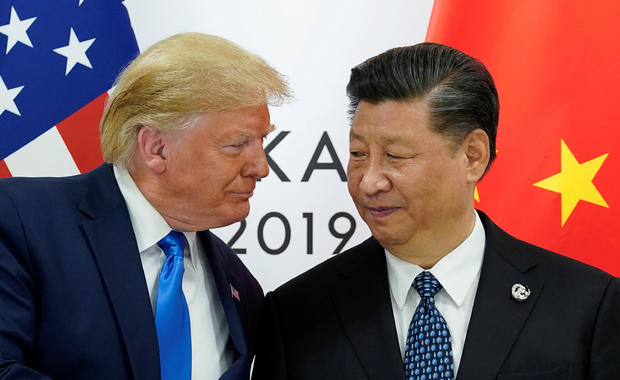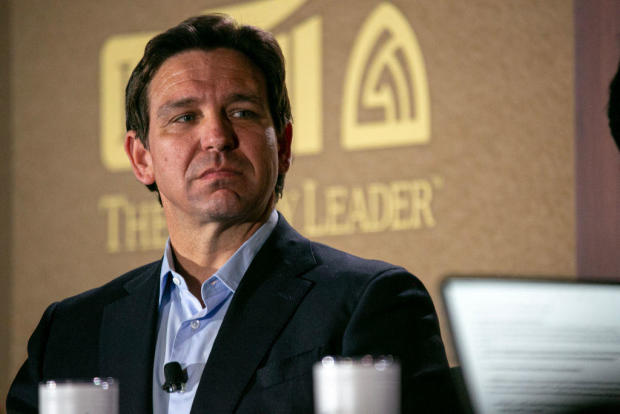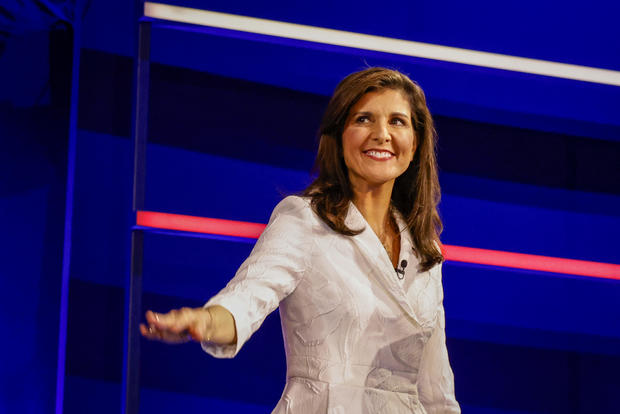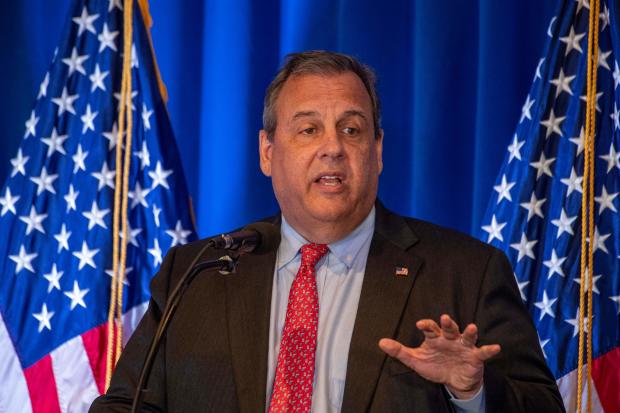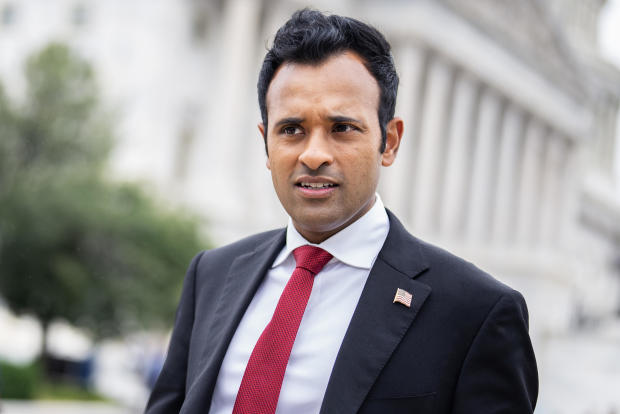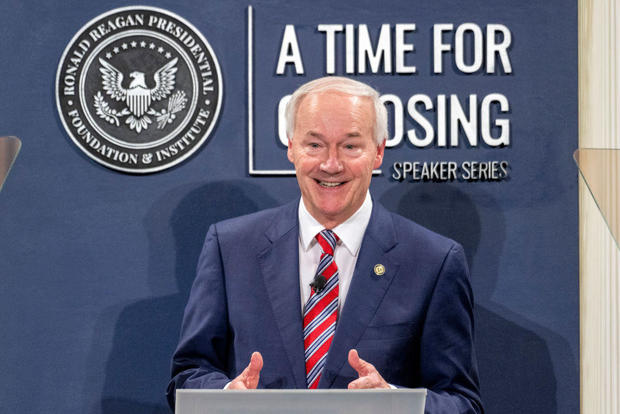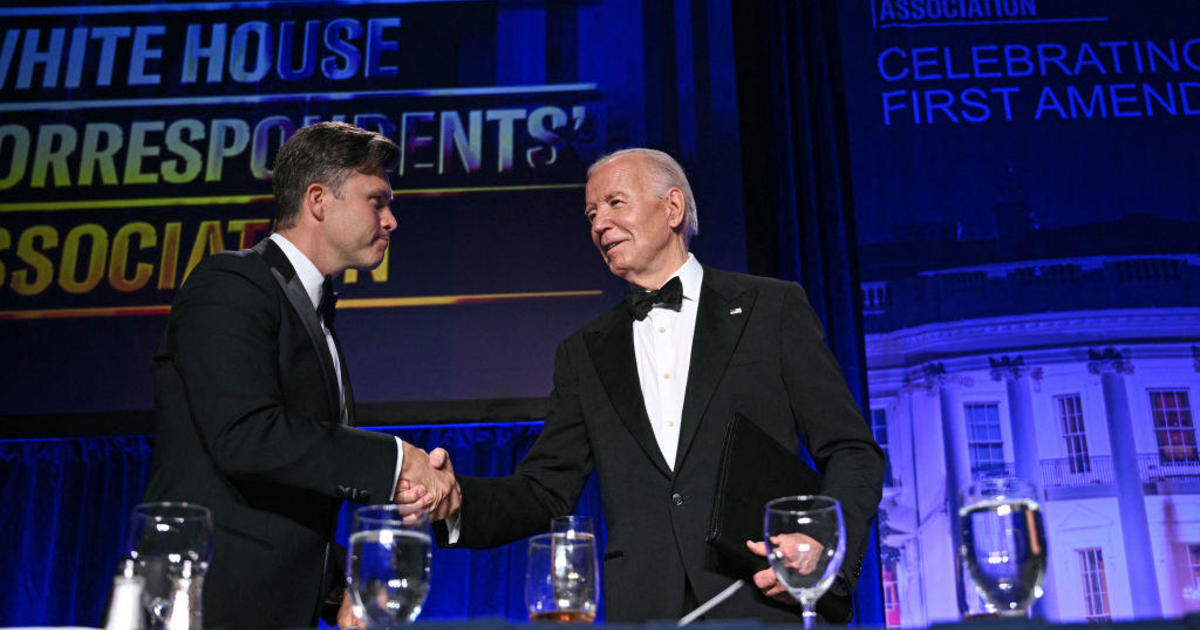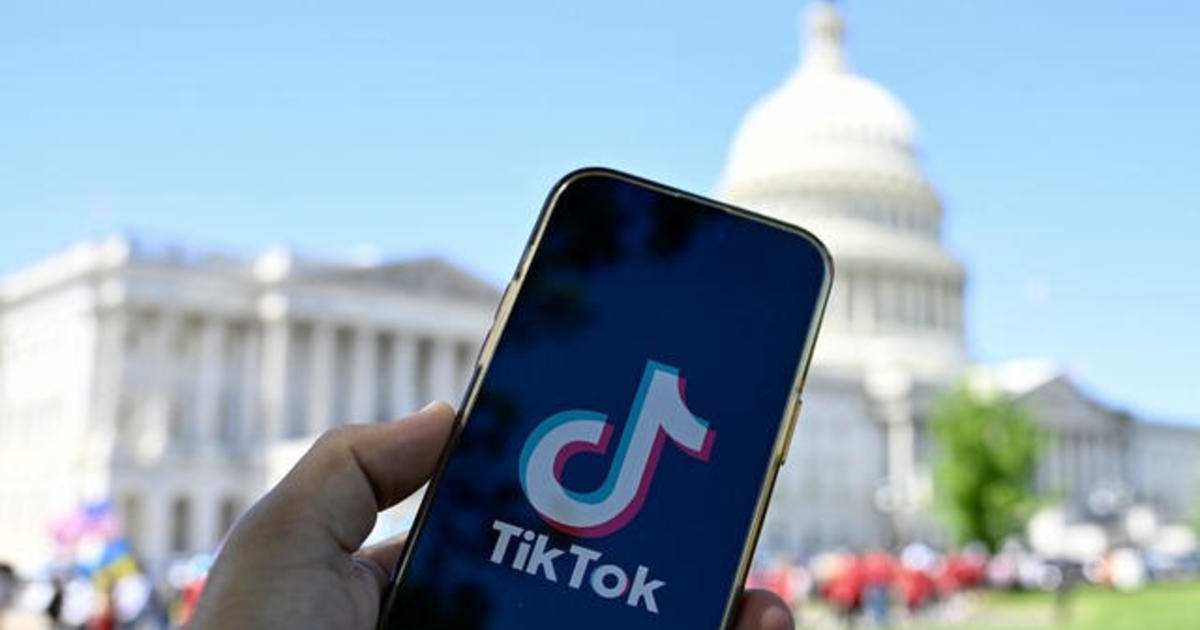Where the 2024 Republican presidential candidates stand on China
How the U.S. should navigate its contentious relationship with China and counter its growing influence will be a prominent foreign policy topic in the 2024 presidential election.
Republicans say the Biden administration's response to China — widely viewed as the greatest geopolitical threat to the U.S. — has been inadequate.
In recent months, candidates have begun to detail their own plans on how to deal with China. But many GOP candidates size up tensions between the U.S. and China in terms that are similar to Democrats, viewing the relationship as a potential new Cold War, though most also note the rivalry between the two countries is still less contentious than the U.S.-Soviet Union relationship was. Some have called for the decoupling of the U.S. and China economies, while others say a move that drastic is not realistic.
Candidates have also hesitated to answer whether the U.S. would defend Taiwan against a Chinese invasion, should any of them be elected president. The U.S. posture toward Taiwan is one of "strategic ambiguity," although under the Taiwan Relations Act, the U.S. would help equip Taiwan, so that it could defend itself against attack.
Here's what the remaining 2024 GOP presidential candidates have said about China:
Donald Trump
Former President Donald Trump has escalated his anti-China policies from his last campaign by essentially arguing for the decoupling of the U.S. and Chinese economies.
He has proposed universal baseline tariffs, revoking China's Most Favored Nation trade status and phasing out all Chinese imports of essential goods within four years. Trump has also proposed barring U.S. companies from investing in China, banning China from buying U.S. farmland and revoking federal contracts to companies that outsource to China.
Trump's campaign says the plan will allow the U.S. to "reclaim our economic independence from China."
The former president began his first term in the White House by starting a trade war with China, imposing tariffs on billions of dollars of Chinese goods. His Justice Department also launched the controversial China Initiative, which sought to crack down on Chinese economic espionage.
During the 2024 campaign he vowed to ramp up efforts to stop China from spying on the U.S., saying "a reformed FBI and Justice Department will be hunting down Chinese spies" and new visa and travel restrictions will "shut off Chinese access to American secrets."
While Trump has taken a tough tone toward China, he has also made admiring statements about its authoritarian leader, Xi Jinping. Even after his presidency, Trump has continued to praise Xi, saying at a town hall in July, "Think of President Xi: Central casting. Brilliant guy. You know, when I say he's brilliant, everyone says, 'Oh, that's terrible' ... Well, he runs 1.4 billion people with an iron fist. Smart, brilliant, everything perfect. There's nobody in Hollywood like this guy."
During an interview with Fox News on July 16, Trump declined to say whether the U.S. should help defend Taiwan from an attack from China if it meant the U.S. would be at war with China.
"If I answered that question it will put me in a very bad negotiating position," he said before accusing Taiwan of taking away semiconductor business from the U.S.
Ron DeSantis
Florida Gov. Ron DeSantis has portrayed U.S.-China tensions as a new Cold War.
"If you look at where we are at this juncture in the 21st century, what the Soviet Union was to us, that's really what China represents in terms of the threat to the free world," he said during an interview with Nikkei Asia in April. "In many respects, the Chinese Communist Party is stronger than what the Soviet Union was, certainly economically."
In October, DeSantis said he would "reorient U.S. foreign policy to prioritize the Indo-Pacific region as the most pressing part of the world," adding that the threat posed by the Chinese Communist Party "requires our primary focus and attention right now."
"They are the first truly peer competitor that we have dealt with in our lifetimes," DeSantis said.
DeSantis vowed to deter China from attacking Taiwan by building up the U.S. Navy to 355 ships by the end of his first term, 385 ships at the end of his second term and placing the U.S. on a pathway to 600 in the next two decades. He also said he would put Taiwan first in line to purchase advanced weapons and ammunition. But he has avoided answering whether the U.S. would send forces to defend the self-governing island, which China wants to bring under its control.
DeSantis also said he would reform export controls so that China cannot obtain emerging technologies, and work with U.S. allies on building supply chains that are not reliant on China.
As the governor of Florida, DeSantis signed several China-related bills into law, including banning Chinese purchases of farmland and land near U.S. military bases and critical infrastructure in the state, and blocking TikTok on government devices and school networks. DeSantis plans a similar ban on farmland purchases as president.
Nikki Haley
Nikki Haley, who served as former President Donald Trump's ambassador to the United Nations, has criticized Trump's approach to China as being too "singularly focused" on trade while he was in the White House.
In a June 27 policy speech on China, she said the Chinese military was "stronger" at the end of Trump's presidency and he showed "moral weakness" in trying to befriend Chinese President Xi Jinping. She criticized President Biden for continuing to "dither" as China "is preparing its people for war."
"Communist China is an enemy," she said. "It is the most dangerous foreign threat we've faced since the Second World War."
Laying out what her policy toward China would look like, Haley said her administration would respond domestically, economically and militarily.
Her proposals include pushing Congress to stop trade relations with China until the flow of fentanyl into the U.S. ends, revoking federal funding for universities who accept money from China and ending the export of sensitive military technology.
She said she would not allow China to buy land in the U.S. and would force it to sell land it already owns.
Haley also wants to ban all lobbying from the Chinese Communist Party, as well as prevent former members of Congress and military leaders from lobbying on China's behalf.
Haley argues the U.S. needs to quickly strengthen its military while deepening military ties with Japan, South Korea and Australia, and create stronger relationships with India and the Philippines.
On Taiwan, Haley said the U.S. and its allies should give it "everything it needs to defend itself" and maintain a strong naval presence in the Taiwan Strait. The U.S. can force China to rethink an invasion of Taiwan by quickly giving Ukraine the weapons and training it needs to fight off Russia's invasion, she said.
"If we rally now, the Chinese Communist Party will eventually end up on the ash-heap of history, like the Soviet Communist Party," Haley said.
Chris Christie
Former New Jersey Gov. Chris Christie wants the U.S. to take "a totally new approach" to China, which could include tariffs.
Like other candidates, Christie believes the competition the U.S. faces with China is more serious than the threat from the Soviet Union during the Cold War.
"I'm not saying that we should isolate China. It's impossible. They're the second largest economy in the world. They have billions of people," Christie told voters in June. "But we have given into their demands of saying, 'We're a developing country. We need more advantages.' Guess what, the development is over. You're now nearly our equal, if not our equal, in many ways. So you know what? Now we compete with each other on an equal basis."
He also views Russia's invasion of Ukraine as a proxy war between the U.S. and China, and has said it's important that the U.S. keep supporting Ukraine to deter China from invading Taiwan.
Christie told voters in October that he would send U.S. troops to Taiwan "if we had to."
"The cost to us economically would be incalculable," he said. "But I don't want to send troops."
Christie said the U.S. defense budget needs to be reconfigured to contain China militarily, predicting that China could be ready to go to war against the U.S. within a decade.
"Our threat now is not Russia, it's China. How do we contain China? More ships and more submarines."
At the GOP debate on Nov. 8, Christie said nuclear submarines are "the greatest deterrent to Chinese aggression" and that it would be his first priority to increase the program.
Vivek Ramaswamy
Biotech entrepreneur Vivek Ramaswamy's China policy focuses on reducing U.S. economic dependence on the country.
His plan includes "tough measures to counter China's unfair trade practices," protecting intellectual property and investing in American innovation and technological advancements such as semiconductors and artificial intelligence.
He has said U.S. relations with other Asian nations, particularly India, are critical to helping the U.S. "declare independence from our top enemy."
"We're cutting the cord unless you drastically reform," Ramaswamy said of how he plans to confront Chinese President Xi Jinping. "No more IP theft. No more data theft. No more turning our companies into pawns to lobby here as a condition for them being able to do business in China. We're cutting the cord. You will not buy land in this country if you're affiliated with the CCP. You will not donate to a university in this country. A U.S. business will not expand into China unless and until the CCP meets our demands or falls."
Ramaswamy also wants to "drive a wedge" between China and Russia, which would make Xi "think twice" about invading Taiwan if he doesn't have another nuclear superpower backing him.
"That's how we deter Chinese aggression without going to war," he said. "That's the hallmark of my foreign policy vision."
The political newcomer said he supports arming and defending Taiwan against China — at least until the U.S. no longer relies on Taiwan for semiconductors.
In response to a question at the November GOP debate about the strength of the U.S. Navy to deter or defeat China, Ramaswamy said he would "increase our naval capacity by at least 20% over the course of several years."
He also wants the U.S. to end its reliance on China as a pharmaceutical supplier, suggesting China could poison the drug supply during a war with the U.S.
Though his rivals have shunned TikTok, which has been widely criticized by Republicans as being a spy mechanism for the Chinese government, Ramaswamy recently joined the popular social media app to reach younger voters.
Asa Hutchinson
Former Arkansas Gov. Asa Hutchinson's believes there can be an economic relationship with China, but wants less economic dependence.
His campaign website says he supports "responsible decoupling in key industries and technologies" and relocating manufacturing capabilities to the U.S.
Hutchinson has proposed increasing the U.S. naval fleet, strengthening supply chain security for pharmaceuticals, high-tech components and other critical goods, and strengthening relationships with Indo-Pacific allies through trade agreements and defense pacts.
He has also said China's leadership "must know our determination to not allow Taiwan to become another victim of China's expansion."
Doug Burgum
North Dakota Gov. Doug Burgum thinks the U.S. is already in a Cold War with China "and we won't admit it." But the way to win it is economically, he said in an interview with "Meet the Press" in July. He also referred to Xi as a "brutal dictator."
In an ad listing off his reasons for running for president, Burgum included "rebuild our military to win the Cold War with China."
When asked during the GOP debate in August how he would deter China, Burgum said the U.S. should put anti-ship missiles in Taiwan.
"The way that you have a war never start, which is the goal, the way you have peace through strength, is that you actually have strength, you actually have deterrence," he said.
Burgum, who started a software company he later sold to Microsoft for $1.1 billion, is the rare candidate who can say he himself was a victim of Chinese intellectual-property theft. He told the Wall Street Journal's editorial board in July that in 1989, his company, Great Plains, was selling its software system for $5,000, a module exclusively in North America. While he was in China, he said that he was tipped off about a market that sold software. He went to the market "and was told he could buy his own product 'on a 5¼-inch floppy for $1,'" he told the board.
